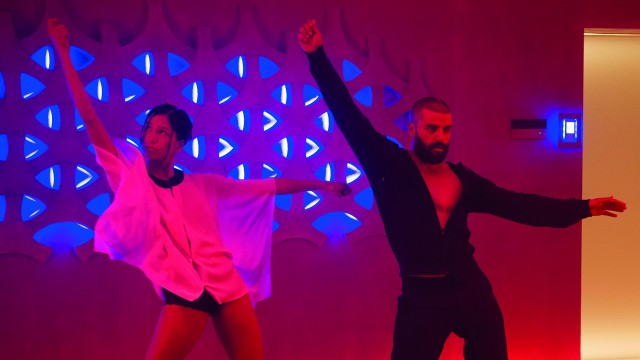Last spring’s Ex Machina is a science fiction film of the sexes. When Caleb (Domhnall Gleeson, Black Mirror), an employee at a mobile technology company, wins a contest at work, he gets to spend a week with Nathan (Oscar Isaac, The Force Awakens), the absurdly rich CEO, in his secret bunker buried in a forest. Rather than just hanging out, Nathan has Caleb conduct a Turing Test on Ava (Alicia Vikander, The Danish Girl), a smoking hot female android.
What starts out as an extended edition of Rachel’s Turing Test scene in Blade Runner takes continuous darker bleaker turns down a pitch black path of sexism and science fiction that either challenges or indulges in sci-fi’s worst tendencies. By design, Ex Machina is a three-hander bottle movie with one female and two males (and one non-speaking woman). In its own way, Ex Machina is a deliberate failure of the Bechdel Test that examines masculinity as it relates to women, and female characters as constructed by men. It dives into some deep and dark areas intended to discomfort right up through to the controversial ending.
Writer/director Alex Garland previously wrote Danny Boyle’s 28 Days Later and the genre-mashing Sunshine. In this, his debut feature, he borrows heavily from Boyle’s playbook saturating the visual aesthetic with color blocking, transparencies, and lighting schemes that direct and dazzle the eye. The ultra-modern aesthetic eventually takes on a darkly surreal atmosphere reflecting our disturbance with the subject matter.
Ex Machina is popping up on best of 2015 lists, and with good reason. Behind the visual razzle-dazzle, Garland created a meta-story that examines itself as it tells a deceptively simplistic parable. Whether it is actually self-critical and has the substance people are thrusting on it, even having a movie sacrifice itself in the name of having a conversation about the all-too-common roles of women in science fiction is a step in the right direction.
Ex Machina streams free on Amazon Prime, and is available for rent on iTunes and Amazon.

